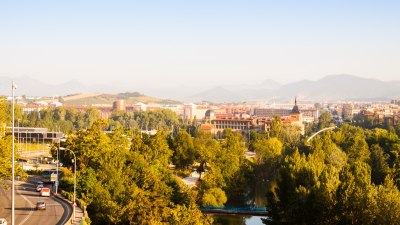How to Plan a Group Camping Trip for Friends and Family
Discover essential tips and tricks for planning a successful group camping trip with friends and family.

Planning a group camping trip can be an exciting endeavor, especially when it comes to reconnecting with friends and family amidst nature. A successful camping trip entails a variety of considerations, from selecting the right campsite to ensuring that everyone has the necessary gear. Below are key steps to help you plan a memorable group camping experience that caters to everyone's preferences.
1. Determine the Group Size
The first step in planning your trip is to establish how many people will be joining. This is crucial because the size of your group will influence various aspects like campsite selection, food preparation, and the type of campsite amenities you may require. It's essential to communicate with everyone to get a clear idea of who is committed to coming. Once you have a tentative headcount, you can make informed decisions moving forward.
2. Choose the Right Campsite
Choosing a suitable campsite is one of the most important aspects of your trip. If your group consists of a mix of campers, ranging from novice to experienced, consider a campground that offers amenities like restrooms, picnic tables, and fire pits. National parks, state parks, and recreational areas often have designated group camping sites which can accommodate larger groups. Make sure to check the reservation policies, especially during peak season, as campsites can fill up quickly. Look for a location that offers fun activities that the group will enjoy, like hiking, fishing, or swimming.
3. Check the Weather
Before the trip, keep an eye on the weather forecast for your planned camping dates. Weather conditions can change rapidly, and it's important to plan accordingly. Excessive heat, sudden rain, or chilly temperatures can impact your camping experience. Everyone should pack appropriate clothing and gear based on the expected weather. Additionally, have contingencies in mind, such as indoor games or activities, in case of inclement weather.
4. Plan the Meals
When camping with a group, meal planning is essential. A well-organized meal plan can simplify your cooking process and ensure everyone is well-fed. Work together with your group to create a menu that accommodates various dietary restrictions and preferences. Consider simple meals that can be prepared over a campfire or portable stove. You might also allocate meal responsibilities so that each member or family contributes by cooking one meal. This not only makes it easier for everyone but also fosters camaraderie within the group.
5. Organize Group Activities
To enhance the camping experience, plan some group activities everyone can enjoy. Depending on your group's interests, activities could include hiking, kayaking, canoeing, games, or even campfire storytelling. Make sure to have a good mix of structured activities and free time, allowing everyone to explore at their own pace. Bringing extra games or sports equipment can also provide entertainment during downtime.
6. Gear and Supplies Check
Creating a checklist of camping gear and supplies can help ensure that nothing essential is forgotten. Inform the group about the necessary gear well ahead of time. This may include tents, sleeping bags, cooking supplies, coolers, utensils, and first-aid kits. If some participants lack specific items, consider coordinating among the group to share gear, as this can reduce what each individual needs to bring and make packing easier.
7. Plan for Safety
Safety should always be a priority during your trip. Familiarize your group with basic outdoor safety practices. Ensure there are first-aid kits available and designate someone to take the lead on safety matters. Teach the group how to identify local wildlife and any potential hazards, such as poisonous plants. Always have a plan in case of emergencies, including a departure route and access to the nearest medical facility.
8. Establish a Communication Plan
Communication can be a challenge when camping in remote areas with limited cell service. Before your trip, establish a communication plan. Make sure everyone knows what to do if someone gets lost or separated from the group. You might also consider bringing walkie-talkies or portable GPS devices for added connectivity. Designate meeting points for larger groups and agree on a schedule for check-ins throughout the trip.
9. Create a Packing List
A detailed packing list will help ensure everyone brings what they need. Include essentials like clothing, toiletries, camping gear, cooking supplies, food, and personal items. Encourage each group member to double-check their items before leaving home. It’s also wise to remind everyone to pack for the conditions that may arise and emphasize that layers work better to adapt to changing weather.
10. Respect Nature and Local Regulations
As responsible campers, it's important to respect the natural environment and local regulations. Before your trip, familiarize yourself with leave-no-trace principles to minimize your impact on the area. Clean up after yourself, dispose of waste properly, and remain respectful of wildlife. It's also a good idea to understand any local rules regarding campfires, cooking, and wildlife interactions to ensure that everyone has a safe and respectful visit to nature.
11. Preparing for Departure
As you get closer to the departure date, there are a few last-minute steps to take. Reconfirm the campsite reservations and ensure that you have all necessary permits in place. Pack up any perishable food items on the day of departure, securing them in coolers to maintain freshness. Schedule a group meeting before you leave to review the itinerary and distribute responsibilities. This will help make sure everyone is on the same page.
12. Enjoy the Experience
Once you arrive at the campsite, it’s time to set up and have fun! Allow everyone to settle into their spots, and then dive into group activities. Don’t forget to take group photos throughout the trip to capture the memories you’re creating together. The beauty of camping lies in the shared experiences, so take the time to enjoy the outdoors and the company of your loved ones.
13. Post-Trip Reflection
After your camping trip, it can be beneficial to gather the group once again to reflect on the experience. Discuss what everyone enjoyed, any challenges faced, and ideas for improvement on future trips. This reflection can foster deeper connections among group members and provide valuable insights for planning your next adventure.
By following these guidelines, you can ensure that your group camping trip is a rewarding experience for everyone involved. With the right planning, clear communication, and mutual respect for nature, you’ll create lasting memories with your friends and family.











